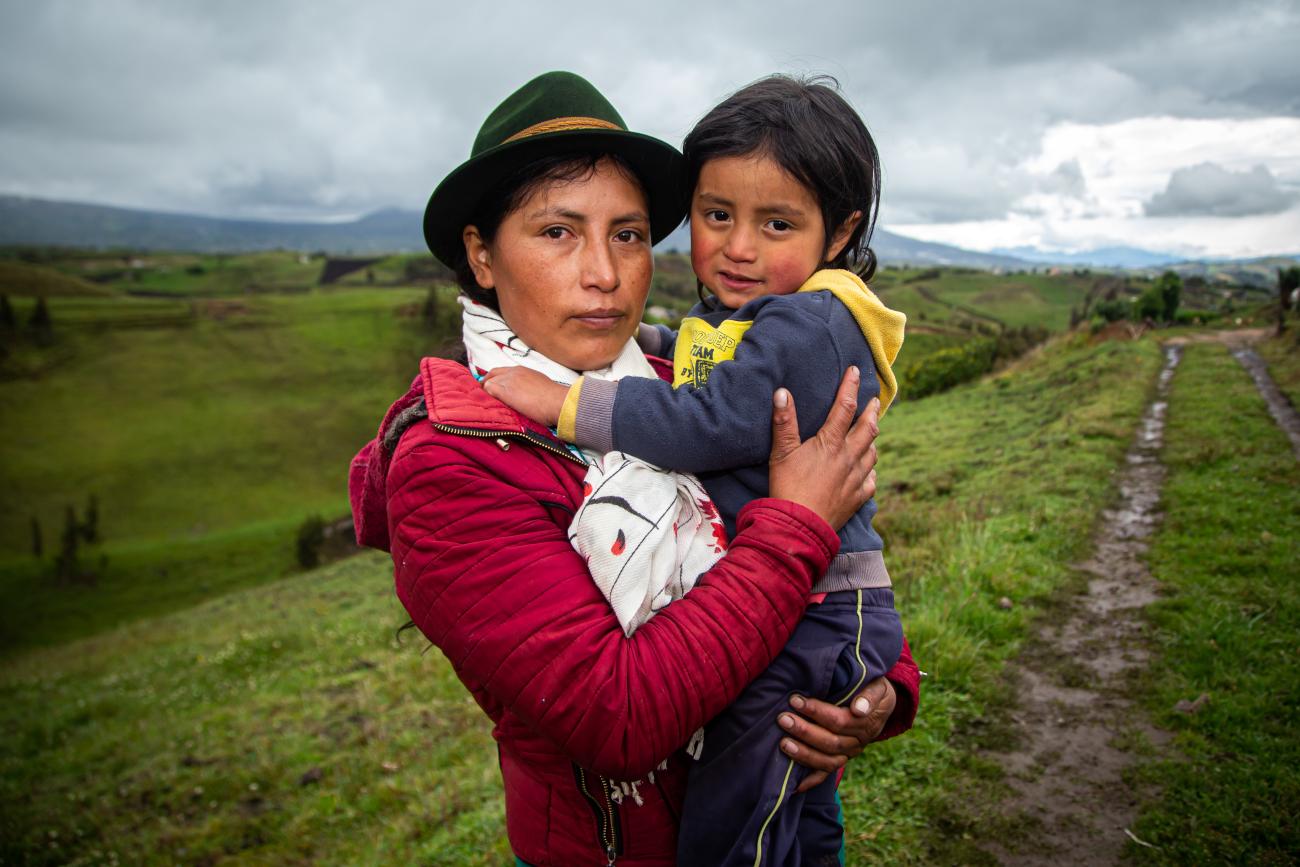Human Rights, a task for all of us

December 10th has always been a day of celebration and reflection. Without a doubt, it should be celebrated that, in a world devastated by war, the drafters of the Universal Declaration of Human Rights on December 10, 1948 had the courage to imagine a world free of fear and want for all. Those values and principles have inspired the transformation and change of laws, institutions, policies and practices in the contemporary world. Ecuador, for example, has ratified the 27 legally binding international instruments on human rights, which have the same status as the Constitution. However, as Eleanor Roosevelt - a politician, diplomat and activist who co-wrote the Declaration - said, we need to bring these transformations to our communities and everyday and family spaces so that the universality of rights makes true sense.
December 10 and the Universal Declaration of Human Rights also invite us to reflect and contrast our aspirations for a dignified and meaningful life, for all, with the reality that we build day by day. In Ecuador, as in other countries in the region, the challenges are numerous and structural. Persistent inequality is reflected in 4 out of 10 people living in poverty, a figure that rises to almost 7 out of 10, in rural areas. 60% of the economy is informal, which deprives a significant number of people of labor rights and excludes them from the social protection system. One in every 4 children under the age of 5 suffers from chronic childhood malnutrition. Before the pandemic, about 268,000 children were already out of the educational system. Our right to a clean and healthy environment is threatened by the triple planetary crisis of climate change, loss of biodiversity and pollution.
Violence continues to open deep wounds in society. Six out of 10 women and girls have experienced some form of violence. The annual cost of teenage pregnancy and early motherhood is about $ 270 million. The violent and painful crisis in the detention centers, which has claimed the lives of more than 300 people this year, reflects the need to rebuild the penitentiary, justice and security institutions, with a rights-based approach.
We are, without a doubt, still far from a world and an Ecuador free of violence and poverty. But we have taken important steps, and we have plenty of reasons to remain hopeful. Hope calls us today, as always, to action. In February 2020, the Secretary General of the United Nations, António Guterres, renewed his Call to Action for Human Rights, convinced that they continue to be a transformative tool to rebuild a better, fairer and greener world. The Secretary General recalled that, in this journey, all societies have benefited from human rights movements led by women, youth, indigenous peoples and Afro-descendants, LGBTI people, people with disabilities, refugees and other groups.
As the implementation of this Call to Action got under way, the rights crisis caused by the pandemic put societies, governments, communities and families to the test. To respond to COVID-19 and other crises in Ecuador, the UN Agencies, Funds and Programs, framed in the 2030 Agenda, keep people's rights at the center of their gaze. Our cooperation is aligned with those objectives and is complementary to national efforts. For this reason, we will continue to support the initiatives of the State, civil society, the private sector, human rights defenders, to strengthen democratic institutions and genuine participation, and imagine an economy based on rights.
As a human rights lawyer, I firmly believe in the daily defense of rights, from all spaces. That is the most powerful way to address all crises and also the best way to honor the day dedicated to freedom and human dignity.
Written by Ms. Lena Savelli, United Nations Resident Coordinator in Ecuador. For more information about the United Nations' work in Ecuador, please visit: Ecuador.UN.org.
To learn more about the reinvigorated UN Resident Coordinator system, please see the dedicated section of the latest UNSDG Chair Report on DCO.













